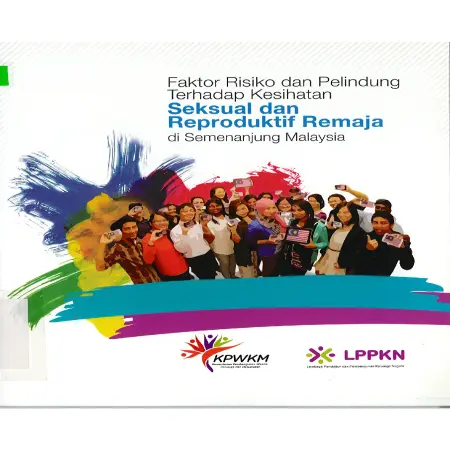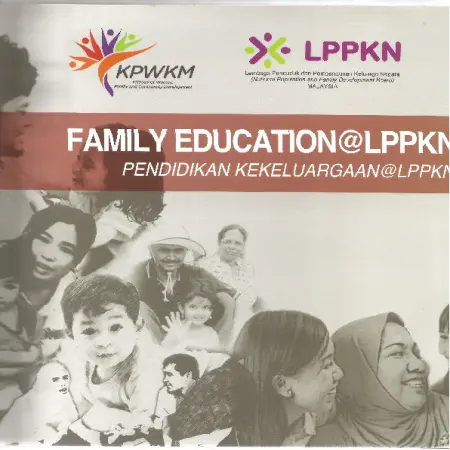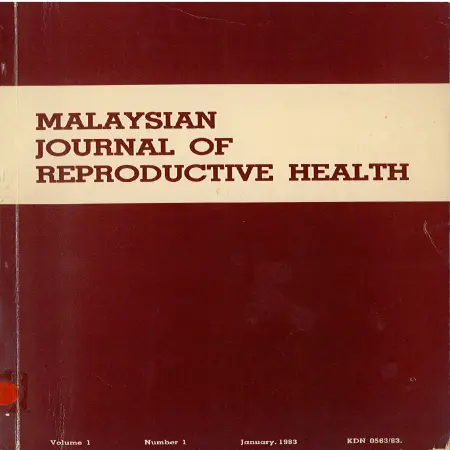Browse by Division/Agency
Results for Division/Agency : "LPPKN - National Population and Family Development Board, Malaysia: Human Reproductive Division"
|
|
Faktor risiko dan pelindung terhadap kesihatan seksual dan reproduktif remaja di Semenanjung Malaysia
Item Type: Research Report
Editor:
Year: 00/00/2015
Abstract: In Malaysia, statistics from the National Registration Department (NRD) show that a total of 214,033 illegitimate children were born from 2004 to 2009. While statistics from the Royal Malaysia Police (RMP) show that 596 cases of baby abandonment were reported from 2005 to 2013. For the total number of rape crimes in among teenagers under the age of 18, PDRM statistics show an increase from 1,710 cases in 2006 to 2,658 cases in 2013. The increase in such cases shows that today's teenagers face the problem of moral decay and fragility of identity which is a concern of Malaysian society. Accordingly, knowledge of sexual and reproductive health can help adolescents avoid negative symptoms such as cases of extramarital pregnancies and social symptoms related to sexuality. The objective of this study was to (i). to study the prevalence of unhealthy sexual behavior among adolescents aged 13-24 years in peninsular Malaysia; (ii). identify risk factors related to adolescent sexual and reproductive health (ASRH); and (iii). identify protective factors related to ASRH. This study was implemented using two (2) main approaches, namely quantitative and qualitative methods. The design of the quantitative study was successfully conducted on 5,088 adolescents aged 13 to 24 years. The qualitative study involved a total of eight (8) Focus Group Discussions (FGD) conducted in eight (8) selected detention centers and shelter hostels located in several states in Peninsular Malaysia.
|
|
|
|
|
|
Family education@LPPKN = Pendidikan kekeluargaan@LPPKN
Item Type: Book
Editor:
Year: 00/00/2013
Abstract: The National Population and Family Board (NPFDB), agency under the Ministry of Women Family and Community Development which was initially known as the National Family Planning Board (NFPB) was established in 1966 as a statutory body. Its main objective was to implement the National Family Planning Programme but its scope has now been expanded to Population, Family Development and Reproductive Health which is in line with 1984 Amendments Act. The Malaysian family today is facing numerous challenges due to rapid socio-economic development and globalization. New challenges have emerged in the social and economic arena, which have had an impact on Malaysian families. Among the challenges experienced by the family institution are changing family structure and dynamics, balancing family and career, fulfilling economic needs parenting of young children and adolecents as well as weakening marital and family relationships. Parallel with the Government's emphasis on strengthening the family institution, the NPFDB has developed and implemented a wide range of family development programmes encompassing advocacy activities and promotion, training and education, services, research and development (R&D) as well as policy formulation. In December 2010, the Government approved the National Family Policy and its Plan of Action, thus mainstreaming the family perspective in all socio-economic planning and development.
|
|
|
|
|
|
Family development module for Institutions of Higher Education
Item Type: Module
Editor:
Year: 01/12/2000
Abstract: The NPFDB has initiated a family development programme (MOPKITP) for students from Institutions of Higher Education. The Family Development Module will be offered through the co-curriculum programme. This Family Development Module Package is a combination of the NPFDB's existing modules, that is Permata Kasih, Youth Exploration, SMARTbelanja, SMARTSTART, Bahtera Kasih, Belaian Kasih, Mutiara Kasih and POP Community. The outcome of this collaborative effort with the Institutions of Higher Education will be a pool of student who are "trained facilitators". Hence the NPFDB will be able to use these students to further expand its family development programmes to the grassroots.
|
|
|
|
|
|
Female sterilization using filshie clip in private practice
Item Type: Article
Editor:
Year: 00/01/1983
Abstract: The findings of a trial clip female sterilization program in private practice in Malaysia is presented. The Filshie clips were successfully applied in 382 subjects. Complications encountered were minimal. Only one subject presented with an intrauterine pregnancy following sterilization (0.3 percent). The success rate was very high in the region of 99.7 percent. This study also strengthens the view that private practitioners can play a very important role in the delivery of family planning advice and services to the masses in developing countries.
|
|
|
|







